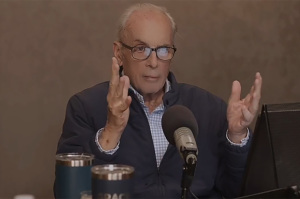Massive Complex Discovered in Biblical Home of Abraham
Archaeologists from Manchester University in England have made an exciting discovery near the ancient city of Ur in southern Iraq, home of the biblical Abraham, unearthing a large complex that could have been used for religious gatherings.
"This is a breathtaking find," said Professor Stuart Campbell, the leader of the university's Archaeology Department. What is remarkable about the sprawling complex, the team said in a statement, is that it extends 260 feet on each side, which is roughly the size of a football field.
"We provisionally date the site to around 2,000 B.C., the time of the sack of the city and the fall of the last Sumerian royal dynasty," Campbell told The Associated Press. "The surrounding countryside, now arid and desolate, was the birthplace of cities and of civilization about 5,000 years ago and home to the Sumerians and the later Babylonians."
Abraham is one of the most central figures in the Bible, and is seen as the founding father of the Israelites, from which Judaism, Christianity and Islam all sprang from.
"It appears that it is some sort of public building. It might be an administrative building, it might have religious connections or controlling goods to the city of Ur," the British team offered. One of the interesting artifacts they found was a 3.5 inch clay plaque which presumably shows a worshipper in a long robe walking to a sacred site.
Campbell's team was the first British-led archaeological dig in southern Iraq since the 1980s, according to AP. "This has been an opportunity to get back to an area very close to our heart for a long time," Campbell remarked.
The story of Abraham was featured heavily in the first episode of the hit History Chanel miniseries "The Bible," and included his journey with the Israelites from Mesopotamia to Canaan, which today makes up several territories in the Middle East.
One of the most popular stories surrounding Abraham, told in Genesis and featured in "The Bible" series, concerned his willingness to sacrifice his cherished son, Isaac, following God's commandment.





























